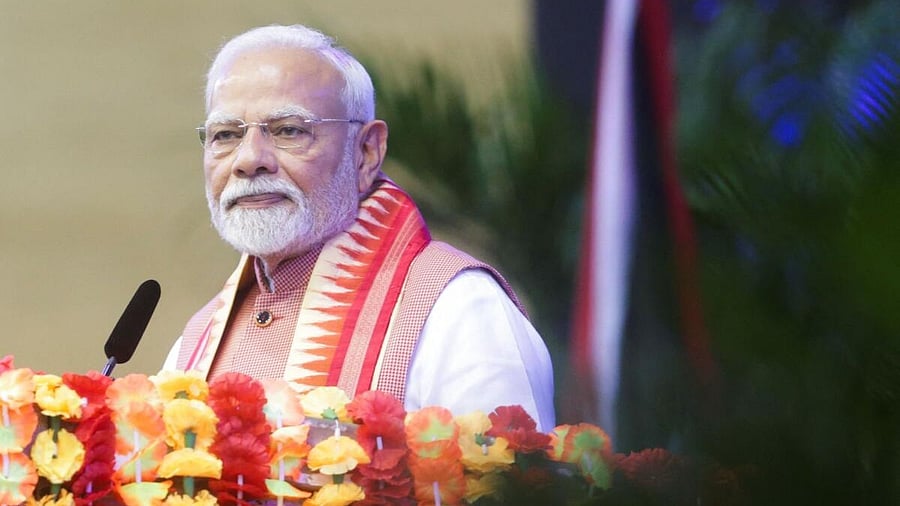
PM Modi
Credit: Reuters Photo
New Delhi: Prime Minister Narendra Modi is likely to visit Malé to attend the celebration of the Independence Day of the Maldives, amid the latest move by China, along with Pakistan and Bangladesh, to isolate India by creating an alternative to the SAARC.
Modi has been invited to attend the Independence Day of the Maldives by the Indian Ocean nation’s president, Mohamed Muizzu, who had won the elections in 2023 riding on a campaign against India and, after taking office, dropped his predecessor Ibrahim Mohamed Solih’s ‘India-First’ policy to steer the nation closer to China, but made a course correction in the second half of 2024.
Though New Delhi has not yet formally accepted the invitation from Malé, the officials of India and the Maldives have been discussing the deliverables of the prime minister’s visit to the archipelago. Modi is likely to join Muizzu in inaugurating some of the projects funded by India in the Maldives during the visit, a source in New Delhi told DH.
Muizzu on October 7, 2024, met Modi in New Delhi and agreed to let New Delhi deploy “defence platforms and assets” in the Maldives – signaling a turnaround in his approach just a few months after his government in Malé had made India withdraw all its military personnel stationed in the Indian Ocean archipelago for humanitarian operations. The turnaround came after India agreed to help the Maldives sail through an imminent economic crisis.
The Prime Minister’s proposed visit to the Maldives is going to be significant, given Beijing’s latest moves to isolate New Delhi in the region, including mediating and making attempts to mend the ties between the Taliban regime in Afghanistan and Pakistan, holding a trilateral meeting with Pakistan and Bangladesh, and thus signaling the intent to build a regional bloc sans India and project it as an alternative to both SAARC and the BIMSTEC.
India, Afghanistan, Pakistan, Bhutan, Nepal, Sri Lanka, and the Maldives are members of the SAARC, which was established in 1985. After back-to-back terror attacks in India by outfits based in Pakistan, Modi had declined to attend the 19th SAARC summit that his then-counterpart, M Nawaz Sharif, had to host in Islamabad in November 2016.
The leaders of other nations had also decided to stay away, leading to the cancellation of the conclave. The regional organisation has remained in an impasse since then. India started promoting the BIMSTEC (Bay of Bengal Initiative for Multi-Sectoral Technical and Economic Cooperation), which included five of the seven members of the SAARC, except Pakistan and the Maldives.
As New Delhi’s ties with Dhaka came under stress after the fall of the Prime Minister Sheikh Hasina’s government in August 2024, Bangladesh’s interim government, headed by Muhammad Yunus, not only moved closer to China but also reached out to Pakistan and the other South Asian nations to revive the SAARC – a move, which was cold shouldered by India.
China’s vice minister for foreign affairs, Sun Weidong, on June 19 hosted Bangladesh’s Acting Foreign Secretary Ruhul Alam Siddique and Pakistan’s Additional Foreign Secretary Imran Ahmed Siddiqui at Kunming in Yunnan in the southern region of the communist country. The trilateral meeting fuelled speculation about China trying to build a new regional organisation with Pakistan, Bangladesh and maybe a few other nations in the neighbourhood of India.
New Delhi reacted to the latest move by China to isolate India, stating that it maintained “a constant watch” on the developments in the neighbourhood that could have a bearing on the interests and security of India.
“Our relations with individual countries, while they stand on their own footing, take into account the evolving context as well,” Randhir Jaiswal, the spokesperson of the Ministry of External Affairs, said in New Delhi, reacting to the latest move by China.
